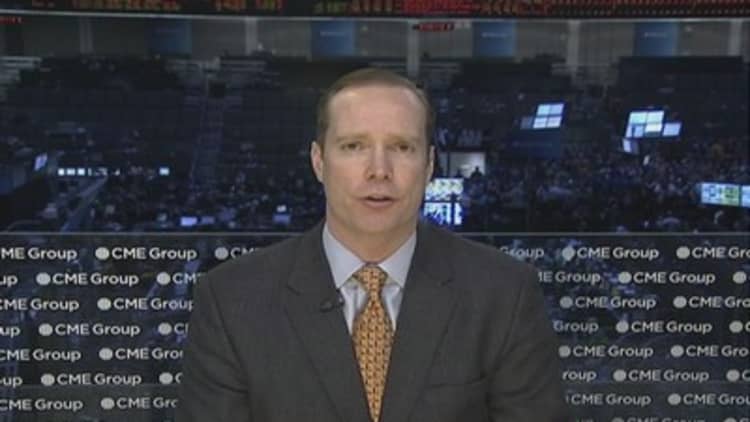Visits to the barista are increasingly yielding discussions about the terroir of coffee and the aroma of grand cru beans. But they are also about to get a lot more expensive thanks to a heatwave in Brazil.
The hottest January on record in the South American country, the largest producer of the commodity, has triggered a wave of coffee-buying on fears that the heat and lack of rain are affecting the growth of prized beans and could result in a shortage.
(Read more: Can Dunkin' Donuts rewards compete with Starbucks?)
The buying has pushed the price of high-end arabica beans, used in espressos, up by more than a fifth over the past five days, the biggest such gain since 2000. On Wednesday the price of arabica jumped more than 4 percent to a nine-month high of $1.44 a pound.
The surge is coming at a time when the appetite for premium beans is growing fast thanks to a new breed of demanding consumers.
According to Andrea Illy, the head of the Illy-family owned Italian coffee group, the past decade led to the "premiumisation" of what was once a pure commodity. But new coffee drinkers and existing ones are continuing to trade up and increasingly want to know more about their morning cappucino.
(Read more: What a coffee bull market means for your latte)
"There is 'romance' in discovering the secrets behind the cup of coffee," he said.
Though bad news for caffeine addicts, the recovery in coffee prices will come as a relief for many coffee growers who have seen the market fall below levels of the cost of production.

After being depressed over the past few years owing to large supplies from Brazil, coffee is among the top performing commodities this year, up almost 30 percent.
With prices tumbling to as low as $1.0415 a pound last year, some coffee growers chose to move out of coffee farming into other crops.
However, it has also prompted others to move up the quality chain to grow premium coffee, which offers higher returns.
More from the Financial Times:
Miners cheer fall in commodity currencies
Victory for French online taxi operators
German school leavers spurn apprenticeships
At the very top end of the market, the price of beans has hit double or triple those quotes on the futures market in New York. This has meant that growers of premium-grade beans in pockets of Colombia, Kenya and Central America have been able to withstand what until recently had been a three-year slump in arabica prices.
"People want to know where the coffee comes from. They want to develop a relationship," said Luis Fernando Samper, chief marketing officer of the Colombia Coffee Growers Federation, an industry association overseeing 560,000 farmers.


